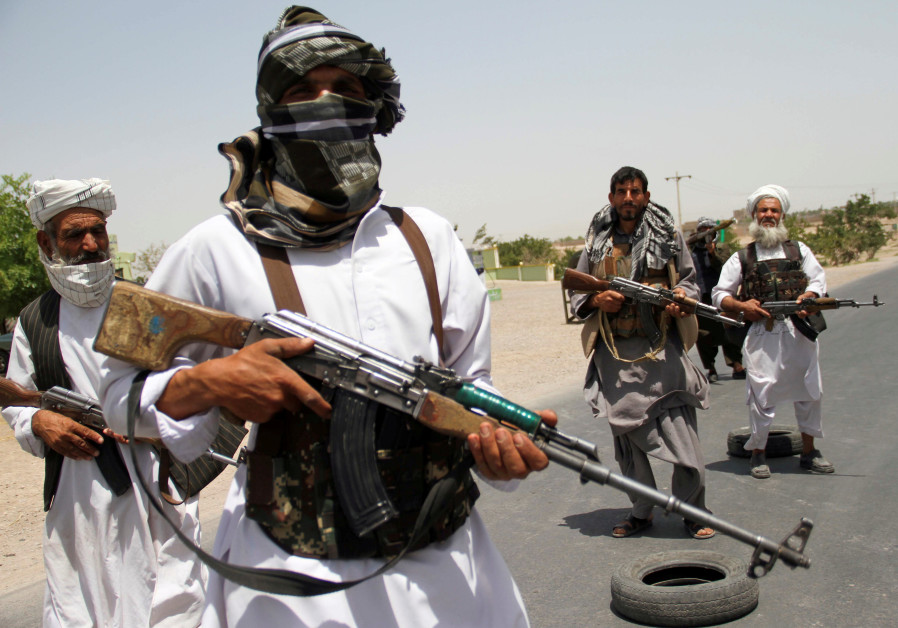The looming crisis in Afghanistan, as the Taliban appear to be marching toward consolidating victories against the government, could have the unintended consequences of possibly fueling Hamas and Hezbollah.
The Taliban are a militant movement that is seeking to capture a country from the internationally recognized central government. Many countries appear to be hosting and helping the Taliban quietly.
This is similar to how Hezbollah and Hamas thrive with foreign support and receive legitimacy, despite their illegitimate stockpiling of weapons and use of extrajudicial assassinations and extralegal militant movements to threaten the region.

For years, the labeling of Hamas and Hezbollah as terrorist groups was supposed to ostracize them and banish them from outside the realm of acceptable organizations. But many major countries did not view them as terrorists, specifically Turkey and Iran. Both back Hamas, and Iran also backs Hezbollah. Hamas leaders have received red-carpet welcomes in numerous countries, from Turkey to Qatar and even Malaysia.
Now, the Taliban victories in Afghanistan – and their ability to open doors from Qatar to Russia and Iran – illustrate that a model of militant extremist movements receiving international “koshering” is happening with increased frequency.
There was a time when countries supported various proxy groups during the Cold War. However, the end of that war led to a brief interlude in international affairs where a hegemonic US and liberal world order appeared to reduce the number of militant movements being treated as states.
Now, global chaos is back – and the rise of various authoritarian regimes that want a multi-polar world and are all opposed to the US means that groups like Hamas and Hezbollah can thrive.
The big question is how much more respect can Hamas and Hezbollah gain? Hamas held a high-level meeting with Russia in March. It has been hosted by Turkey, although Ankara also hosted Palestinian Authority President Mahmoud Abbas recently. The question is whether a Taliban victory might make countries more willing to be flexible on hosting senior Hamas and Hezbollah leaders.
So far, the international community has put almost no pressure on these groups to lay down their weapons. Hezbollah not only possesses 150,000 rockets but also appears to conduct foreign and military policy for Lebanon, slowly supplanting the state; perhaps it has already become more wealthy and powerful than the state that hosts it.
Hamas also recruits child soldiers and conducts illegal rocket fire against Israel. The fact that these organizations appear to thrive and receive financing indicates that no price is exacted from them.
The more than 4,000 Hamas rockets that were fired at Israel did not lead to widespread global condemnation. This means that the Taliban appearing to consolidate gains could have the unintended global effect of fueling Hamas and Hezbollah and their danger to the Middle East – as well as the wider danger that militant groups pose to world order.
